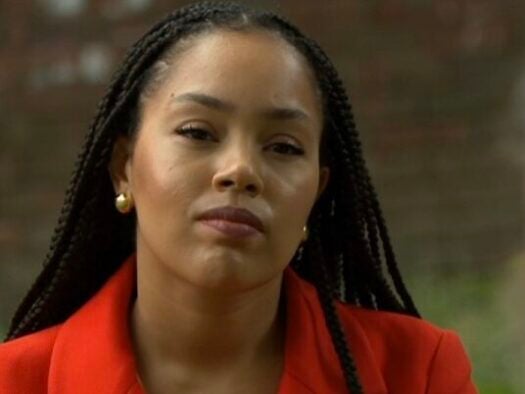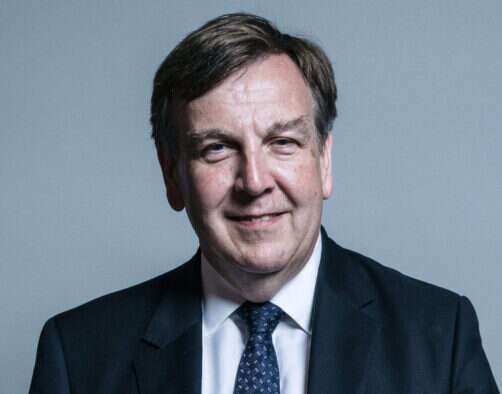Journalists have spoken about how receiving online abuse feels like being “eviscerated by a pack of dogs in the street” and even left them considering a job change as new legal guidance was launched to help journalists know how they can fight back.
The Media Lawyers’ Association and the Department for Digital, Culture, Media and Sport commissioned guidance, produced by Doughty Street Chambers, on the legal powers available for journalists to respond to online abuse.
A survey of Media Lawyers’ Association members conducted for the report, focused on UK journalists and media outlets, saw 92% say abuse of journalists had increased.
The report comes as the BBC revealed that radio journalist Stephen Nolan had tracked down an anonymous Twitter troll making defamatory statements against him and obtained six-figure damages.
The “single most important step” journalists can take when abuse arises is to keep records, including by saving offensive messages and screenshotting, the guidance says.
It says: “If there is evidence of multiple and systematic attacks, it is likely to become easier to persuade online platforms, law enforcement agencies and international bodies to take action.”
‘Totally dehumanising’
Channel 4 News presenter Cathy Newman was among those who told a Zoom event, organised by ITN to mark the publication of the guidance, of her experiences with abuse.
She said: “Online abuse is just totally dehumanising. There’s no other word for it really. When I got death threats and had my home address put online I didn’t feel like a human being. I felt as if I was being eviscerated by a pack of dogs in the street.
“It was really stressful for me, it was really time-consuming to deal with as well, but it was also really stressful for my family particularly because my teenage daughter came across some of the abuse online.”
[Read more: Journalism students now need training for ‘vile’ online abuse they will face, study finds]
Independent journalist Lizzie Dearden, who has frequently reported on subjects such as refugees, crime and terror attacks, has faced abuse online for years but is particularly targeted by far-right activists.
In March a court put a temporary stalking prevention order on English Defence League founder Tommy Robinson after he threatened Dearden and her partner, including by turning up at their home at night. A full application in the case is due to be heard shortly.
Dearden told the panel on Tuesday that the stalking prevention order was used because “the behaviour from him personally dates back several years and started with online harassment that obviously eventually went offline”.
She revealed she had considered changing her role because of an earlier case which saw right-wing activist James Goddard handed a restraining order (his second against a journalist) for abusing Dearden at court – the first time online abuse against her spilled into real life.
Dearden said: “I considered changing my role because of that but I didn’t, I kept on going.”
Online abuse of journalists: ‘The answer can’t be self-censorship’
She added that many of the solutions given to targeted journalists currently amount to self-censorship, such as avoiding coverage of certain topics or people or shutting down social media accounts.
“The answer can’t just be self-censorship and growing a thick skin,” she said.
Rianna Croxford, who became the BBC’s youngest network news correspondent last year, considered leaving journalism altogether because of the abuse she suffered.
[Read more: Rianna Croxford on her ‘tough’ first year as correspondent]
In June last year, Croxford woke up to find a picture of herself taking up half a page in the Mail on Sunday next to the headline: “BBC accused by Minister of fanning racial tensions over Covid AND Black Lives Matter.”
The MP making the accusations was Equalities Minister Kemi Badenoch, who publicly accused Huffpost journalist Nadine White (who has since joined The Independent) of “creepy and bizarre” behaviour for asking why she had not appeared in a video promoting the Covid-19 vaccination campaign.

BBC correspondent Rianna Croxford. Picture: BBC
In July last year, Croxford was the subject of Guido Fawkes and Daily Mail stories calling her a biased “Corbynista correspondent” because of tweets she sent while at university, and the following month she was named in a letter from MPs to the BBC’s new director-general Tim Davie claiming there is a “distinct lack of impartiality in BBC reporting and commentary”.
‘Was it worth it?’
Croxford told the ITN event all three occasions had sparked “quite horrendous online harassment” against her, often personal criticism and often racially motivated.
She said she has frequently received messages featuring the N-word or calling her a monkey, with other more subtle racist abuse including: “Just looking at your face makes me uncomfortable”, “go back to where you came from”, and “you’ve only been hired to fit a quota or tick a box”.
Referring to the first occasion, she said: “I don’t think I’ll ever really forget that day. The intense anxiety that I felt, partly because I hadn’t received a right of reply, I had no idea it was coming, I just woke up to hundreds of messages of people criticising me and abusing me.
“It did make me question whether I wanted to remain in the profession. I started my job at the beginning of the pandemic, literally the week that lockdown started. It felt like if people were already trying to end my career, all those pile-ons were getting excessive, was it worth it? Was it worth pursuing this? Those are lots of the feelings I worked through. It can be intense, it can be uncomfortable.”
Croxford added that she has recently passed certain stories to colleagues because she felt she could not cope with “yet another pile-on” during lockdown.
[Read more: Reach to hire industry-first online safety editor to tackle ‘endemic’ abuse]
Abuse is ‘part of the price you pay’ for public life
Media Minister John Whittingdale, who has himself recently received death threats, said that although Badenoch’s post about Huffpost journalist White led to a deluge of abuse against her, this was not the intention.
“I think everybody in public life does need to be careful what they say but quite often this is sparked without certainly any invitation or intention,” he said.
“There are an awful lot of people out there who almost are looking for reasons to pile on and abuse people and unfortunately both journalists and politicians seem to suffer from this more than most.”

Minister for Media and Data John Whittingdale. Picture: Parliament
Asked whether the Government was acting as arsonists as well as the firefighters by stoking distrust towards journalists, Whittingdale said: “I think we need to distinguish between what is occasionally a pretty robust debate between journalists and ministers or politicians or other public figures.
“If a journalist prints a very hostile story either about the politics of a party or indeed about a personality then I think it’s acceptable for that person to turn around and be quite robust in their response.
“That does not mean they can make physical threats, that they can use abusive language, or that they can fuel this hatred which is all too common online, but I do think there’s a difference between extremely robust political debate in some cases and personal threats.”
Whittingdale said abuse was “part of the price you pay” for going into public life, adding: “You do need to develop a thick skin, you do need to ignore an awful lot of stuff on Twitter but at the same time we shouldn’t just dismiss it.”
This is why the Government has developed a national action plan for journalists’ safety and will put a duty of care on social media platforms in upcoming online safety legislation, he said.
But the Government needs to do more, said Caoilfhionn Gallagher QC who had strategic input on the latest legal guidelines and told journalists to “screenshot, screenshot, screenshot – and report”.
She said: “It does seem to me that it’s key that actually government ministers are singing from the same hymn sheet and when the DCMS recognises and the Foreign Office recognises global freedom of expression, recognises the importance of safety of journalists and this being a government priority, it’s key that other ministers also recognise the importance of that and do not engage in the kind of behaviour which resulted in a Huffpost journalist being attacked.”
Picture: Shutterstock
Email pged@pressgazette.co.uk to point out mistakes, provide story tips or send in a letter for publication on our "Letters Page" blog
